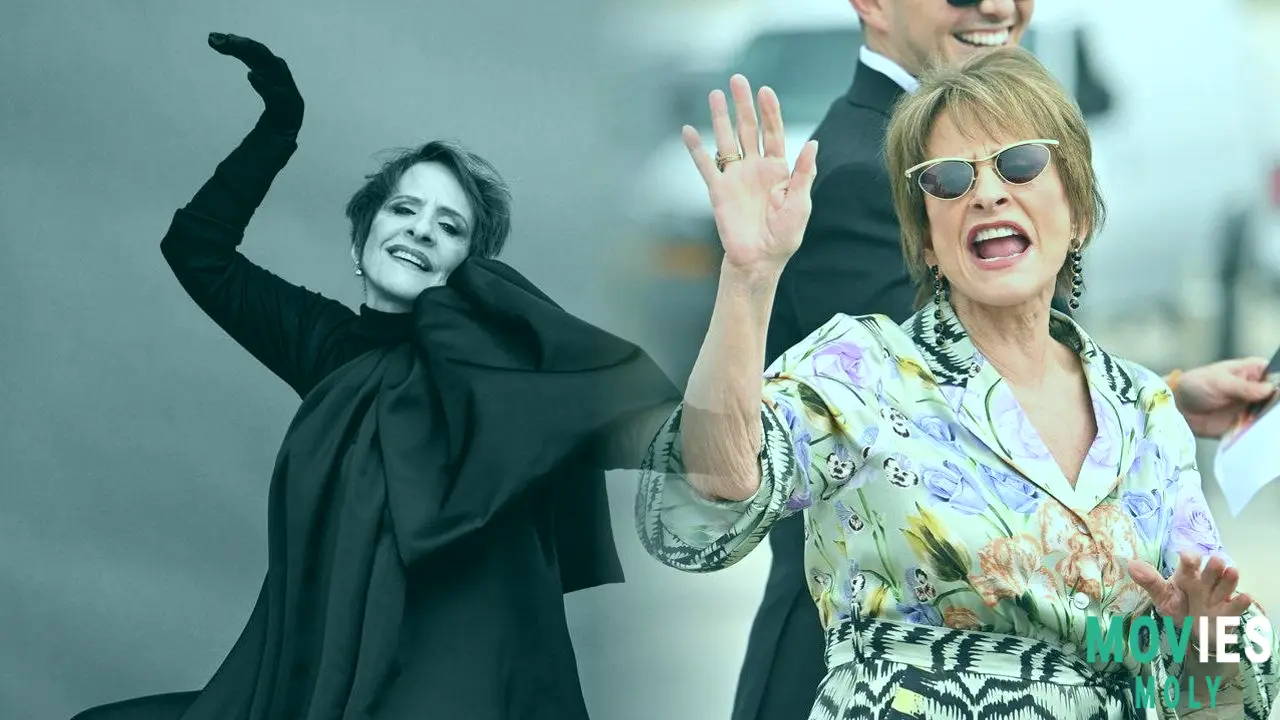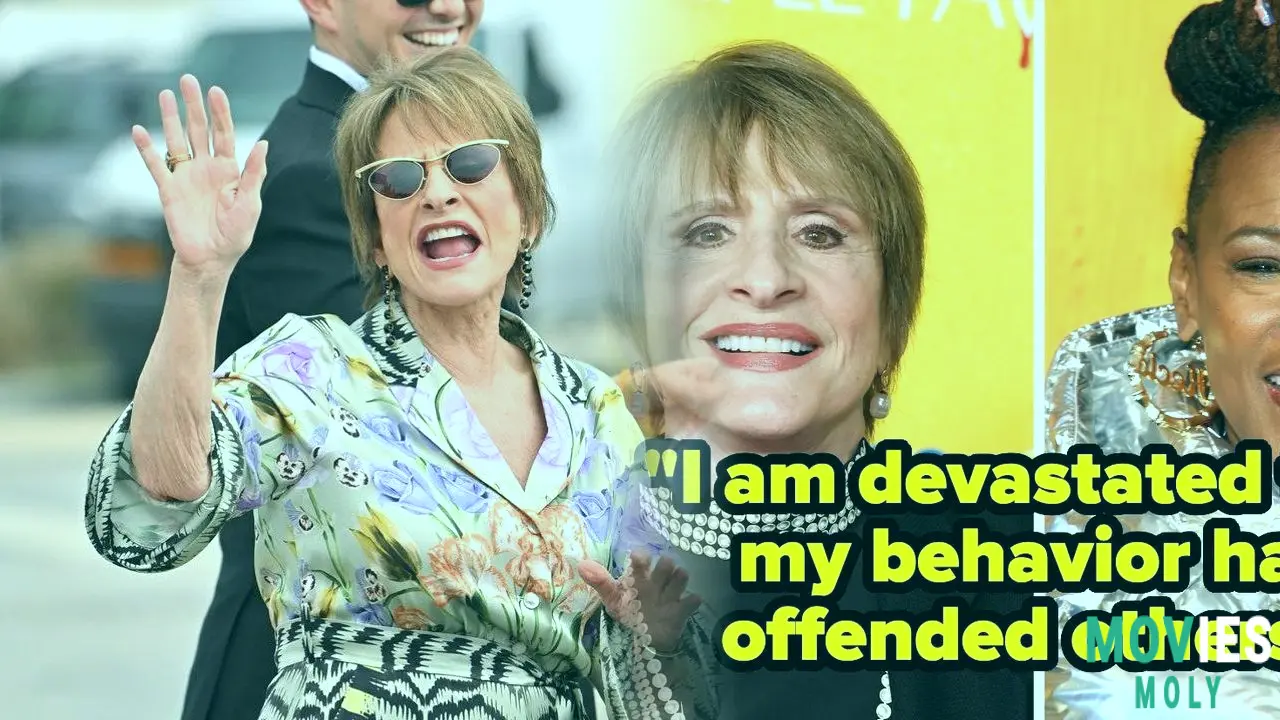If you have followed Broadway at all, you know Patti Lupone is not one to hold back her opinions. For years, she has been famous for her powerful voice and for speaking her mind. Sometimes those opinions have gotten her into trouble. This time, a recent interview in The New Yorker has stirred up quite a storm in the theater world. But unlike many past situations, LuPone actually said she was sorry.
The whole situation stems from an interview published on May 26. In it LuPone talked about some issues from last fall. She was appearing on Broadway in "The Roommate." That theater shared a wall with the Shubert Theatre where the Alicia Keys musical "Hell's Kitchen" was playing. LuPone complained that she could hear loud noises from next door. She even sent flowers to the cast and crew of "Hell's Kitchen" after the volume was turned down. But then, an actress from "Hell's Kitchen," Kecia Lewis, spoke out on social media. Lewis said LuPone's actions were "bullying" and had a "racially microaggressive" feel to them. Audra McDonald, another big Broadway star, liked Lewis's message.
When the New Yorker asked LuPone about Lewis's post, she questioned if Lewis was really a Broadway veteran. She also used a very demeaning word to describe Lewis. In that same interview she hinted at problems with McDonald's work, especially when talking about a role LuPone herself won a Tony for. McDonald has won six Tonys, which is a record.
The Broadway Community Reacts Strongly To Patti LuPone's Unfiltered ThoughtsHow An Open Letter From Hundreds Of Artists Led To An Unexpected Apology
LuPone's comments really shook the Broadway community. Over 500 performers and artists signed an open letter. This letter asked the Tony Awards to not invite LuPone. The letter made it clear that no artist, no matter how famous, should be able to use their platform to put down or threaten others without facing consequences. It said LuPone's comments about Lewis were "degrading and misogynistic" and "a blatant act of racialized disrespect." The letter called her actions "bullying" and said they showed a pattern of mistreatment in the industry.
Audra McDonald had also talked about LuPone's comments. She said in a CBS interview that she did not know of any "rift" between them and that LuPone would have to explain it. This kind of public disagreement, especially from someone as well-known as LuPone, really got people talking. It showed how much feelings were running high and how important the theater community felt about standing up for each other.
Then, something unusual happened. Patti LuPone, who has often said she never apologizes for speaking her mind, changed her tune. She posted an apology on Instagram. In her message, she wrote that she was "deeply sorry" for the words she used in The New Yorker interview, especially about Kecia Lewis. She admitted her responses were "flippant and emotional" and "inappropriate." LuPone said she was "devastated" that her behavior had offended others and went against the community's shared values. She hopes to talk to Audra and Kecia personally to say sorry face-to-face.
LuPone also said she "wholeheartedly" agreed with everything in the open letter. She reminded everyone that theater, from middle school to professional stages, is about lifting each other up and welcoming those who feel they do not belong anywhere else. She accepted full responsibility for her mistake and promised to make things right. She stated that the entire theater community deserves better. This apology was a big moment. It showed a shift for someone famous for being so direct and sometimes confrontational.
Beyond The Headlines: Patti LuPone's Public Persona And Personal Battles

Understanding The History Behind The Diva Label And Her Constant Drive To Fight
LuPone's bluntness has made her a kind of folk hero in New York. She is known for her fierce spirit. She once took a cell phone right out of a texter's hand during a show. She has also yelled at audience members for not wearing masks properly. When asked about President Trump, she famously said she would never perform for him because she "hates the motherf—er." Her sharp comments often go viral, showing that people are drawn to her unfiltered nature.
At 76, LuPone has gained an unlikely cool factor. She has appeared on many TV shows like "Glee" and "American Horror Story." She was in the Marvel Cinematic Universe in "Agatha All Along." Her co-star Aubrey Plaza said LuPone "doesn't give a s— about what anyone thinks." Plaza even lived in LuPone's apartment for a while, and LuPone would cook for her and leave her carved turkey in the fridge. This shows a different, softer side to her public image.
But behind the strong opinions and stage presence, LuPone has a deep history of struggle. She often asks "Why?" about the unfair things she has faced. This goes back to her childhood. She was spanked without explanation as a child for wandering off. Her family also had a dark past, with her maternal grandfather being murdered. Her parents divorced when she was young in a dramatic way. These experiences seem to have shaped her constant need to understand and fight against what she sees as wrong.
She also hates being called a "diva." She says she knows what she is worth to a show. She knows she brings people to the box office. She simply wants to be valued and treated with respect. If she is not, she sees no reason to be there. She asks "Why do I have to fight?" and wonders what she is learning in this life. She often thinks that she "was dealt the hard hand, in everything."
Patti LuPone's Thoughts On Broadway And The Changing Face Of New York City

From Traffic Frustrations To A Love-Hate Relationship With The Big Apple
LuPone has said she is "done with Broadway" at least for now. Part of her frustration comes from the changes to Times Square. She complains about the pedestrian mall making it impossible to get to work. She even used a bullhorn to yell at pedestrians from her car window when she was in "Company." She misses the gritty old New York of the sixties and seventies, when she first moved from Long Island. She found it "bankrupt, dangerous, and creative." Now, she feels the city has become too corporate. She worries the theater has gone back to being just "follies and Ziegfeld girls."
She is even angrier at the rest of the country. She has said the "Trumpified" Kennedy Center "should get blown up." She believes New York should be its own country because it is so diverse and "in-your-face." She calls it a "live-or-die city." In person, she is fun and gossipy. She recalled seeing an opera where she could only focus on a bowl of fruit on the stage. But she also tells people to keep it down in public, showing her strong feelings about how people act.
She has a "love-hate relationship" with New York because it forces her to face things. She likes that New Yorkers can spot a fake. But her dislike of fakeness often gets her into trouble. She believes her fights are part of her story. She feels she has been "punished for wondering what was going on since I was four."
Looking Back At Her Famous Feuds And Iconic Roles

From Evita To Sunset Boulevard, Her Career Is Full Of Drama Both On And Off Stage
LuPone's career is marked by famous feuds. She fought with Andrew Lloyd Webber after being replaced by Glenn Close in "Sunset Boulevard." She even used part of her settlement money to build a pool she called the "Andrew Lloyd Webber Memorial Swimming Pool." She also called Madonna, who starred in the film version of "Evita," a "movie killer." These public spats have added to her legend as someone who does not back down.
Despite these struggles, LuPone has had an incredible career. She won a Tony for her performance as Eva Perón in "Evita." It was a tough experience. She blew out her voice and felt isolated during rehearsals. But the show made her a star overnight. Later in her career, she won another Tony for playing Madame Rose in "Gypsy." This role, a mother who pushes her daughters into show business, seemed to mirror some of LuPone's own struggles. She brought a mix of strength, rage, and sadness to the part.
Her work with Stephen Sondheim also helped her comeback. She played Mrs. Lovett in "Sweeney Todd." Her strong performances continued to cement her place as a Broadway legend. Even though she sometimes questions why her life has been so hard, she believes failure teaches you more. She says "Failure makes you investigate. Failure moves you to the next step." It seems Patti LuPone will keep fighting, keep performing, and keep speaking her mind, even if it means saying sorry sometimes.




